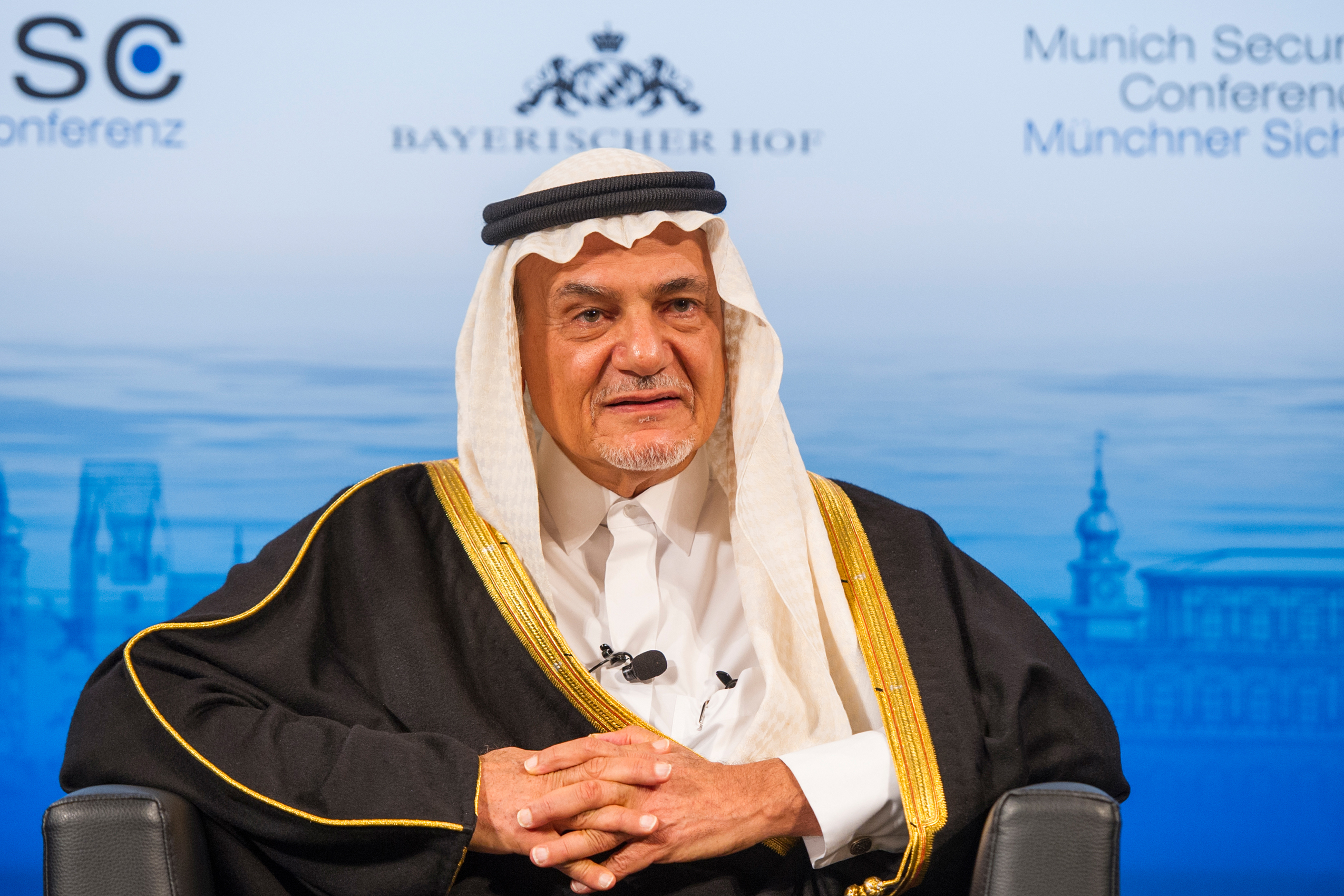Remarks from Prince Turki Al Faisal, head of Saudi Arabia’s intelligence service, were highly anticipated at this past weekend’s Arab Conference at Harvard, considering his country’s recent political upheaval. Crown Prince Muhammad bin Salman stunned the world last week when he ordered the arrest of over a dozen members of the royal family on charges of corruption, though many analysts interpret the act as a bid to consolidate power. The number of people detained has passed 200. Some even speculate that the Trump administration was forewarned of the move during Jared Kushner’s secretive visit to Riyadh on October 25th. The announcement of Lebanese Prime Minister Saad Hariri’s resignation from Riyadh on November 4th turned more heads, and the Kingdom’s further move to recall its citizens living in Lebanon led to speculation that Saudi Arabia is seeking a new front in its competition with Iran.
Prince Turki Al Faisal arrived at the Arab Conference at Harvard, on the evening of November 10th, in this fraught context. His ability to leave the Kingdom at such an uncertain time indicates that his position within the palace is relatively secure, and so it was not surprising that his comments added little clarity to the Saudi situation. He began his speech by laying out the myriad challenges the region faces, most of them in security, and he laid the blame for regional instability on a failure to modernize states and consolidate their positions as nations. At the same time, he said that the “weakness, fragility, and fragmentation of the Arab regional system, which affects all of its political, social, and cultural institutions, must be cured,” and that “this system lacks the necessary vitality…to protect the Arab countries.” He suggested that the Arab League had fallen victim to the personal aspirations of individual leaders, and said that the region’s nations must focus on cooperation and set aside disputes of primacy between them. Prince Turki’s evocation of Arab unity is odd considering the regional atmosphere that has shunned pan-Arab sentiment for decades. It speaks to Crown Prince Muhammad bin Salman’s attempt to salvage the Kingdom’s slipping regional influence as part of his larger Vision 2030 rebranding project.
Prince Turki’s speech emphasized Saudi Arabia’s transition into a new age, whilst its people have heeded decades of American advice and are now working to reform themselves politically, socially, and economically. He expressed these goals within the context of the crown prince’s vaunted Vision 2030 project, which not only sets out a plan to diversify the Kingdom’s economy by attracting investment in high-tech fields such as automation and robotics, but will also bring more social equality, especially for women. The prince’s remarks were strongly aligned with the goals that Crown Prince Muhammad has advanced for his administration, which Saudi-watchers see as a foregone conclusion thanks to the wide array of powers he has gathered into his personal purview. Prince Turki also devoted special attention to Iran, whose “extra-territorial ambitions” he compared to those of ISIS, who lost their final stronghold in Syria last week. On Qatar, the prince stressed the importance of the Gulf Cooperation Council (GCC) despite the current diplomatic crisis, which he blamed on “Qatar’s tweeting” in an apparent reference to inflammatory statements which appeared on Qatar News Agency and online commentary, both of which Qatar blamed on hackers.
In a turn away from regional politics, Prince Turki concluded his comments by encouraging the audience to turn its attention to American politics. After blaming the Middle East’s instability on the policies of the “last two administrations” in the White House, he expressed hope that President Trump would remedy the errors of his predecessors. He also had some advice for Americans, encouraging the United States to “reform your political system,” asking:
“Is it okay with you that your Supreme Court has legalized political bribery as a right? Is it okay with you that one man one vote is abrogated by the long-outdated Electoral College? Is it okay with you that your media has no boundaries and responsibilities as your executive, legislative, and judicial branches of government do?”
The Prince stressed that the world wants the US to be strong and united, and he seemed to imply that it should reform itself as the Kingdom is currently doing under Crown Prince Muhammad.
Overall, the speech positioned the Kingdom as unified and committed to a common goal – the Crown Prince’s goal. Prince Turki was adamant that Saudi Arabia’s reforms were ambitious, but within reach, and that the Kingdom is positioning itself to become a beacon for unified action for the entire region. He aimed to contrast the Saudi reform project with the divisive political climate in the US, portraying Saudi society as one striving to accomplish a common goal with one mind.
This portrayal of the country is out of step with the explosive events of the last two weeks. With the Crown Prince’s corruption probe continuing to widen, his project looks less and less like reform, and more like the construction of a modern dictatorship that centralizes all branches of government under one strongman. Lifting the ban on women drivers was a positive step, but it does nothing to address the far more stifling system of male guardianship to which Saudi women must still adhere. While the political challenges facing the US are significant, Prince Turki’s invocation of them rang hollow in light of his country’s upheaval. Both countries undeniably face massive challenges, but this tactic read more as a distraction than an actual policy recommendation. Time will tell if Saudi Arabia can achieve the Crown Prince’s Vision 2030 plan, and if it can effectively compete with Iran for regional prominence.
